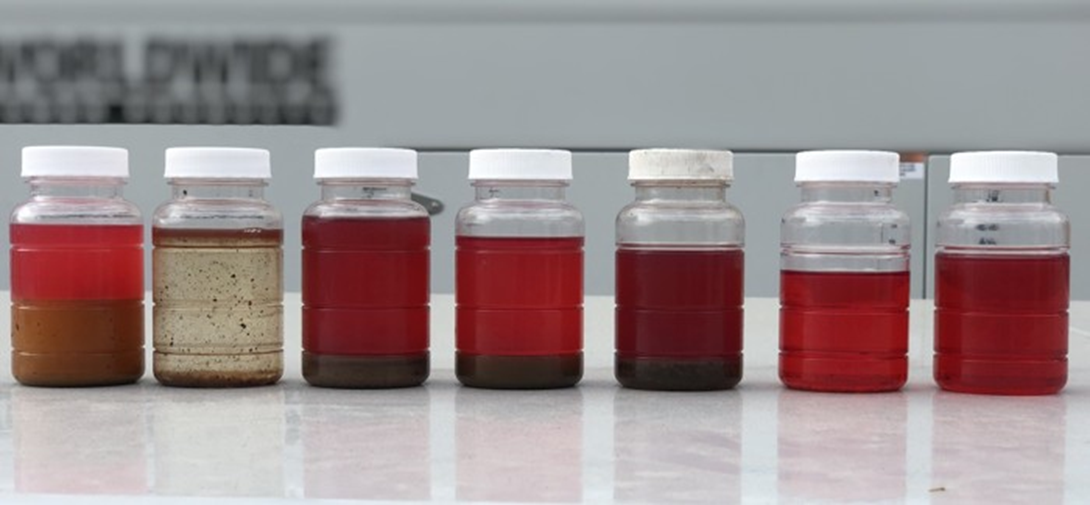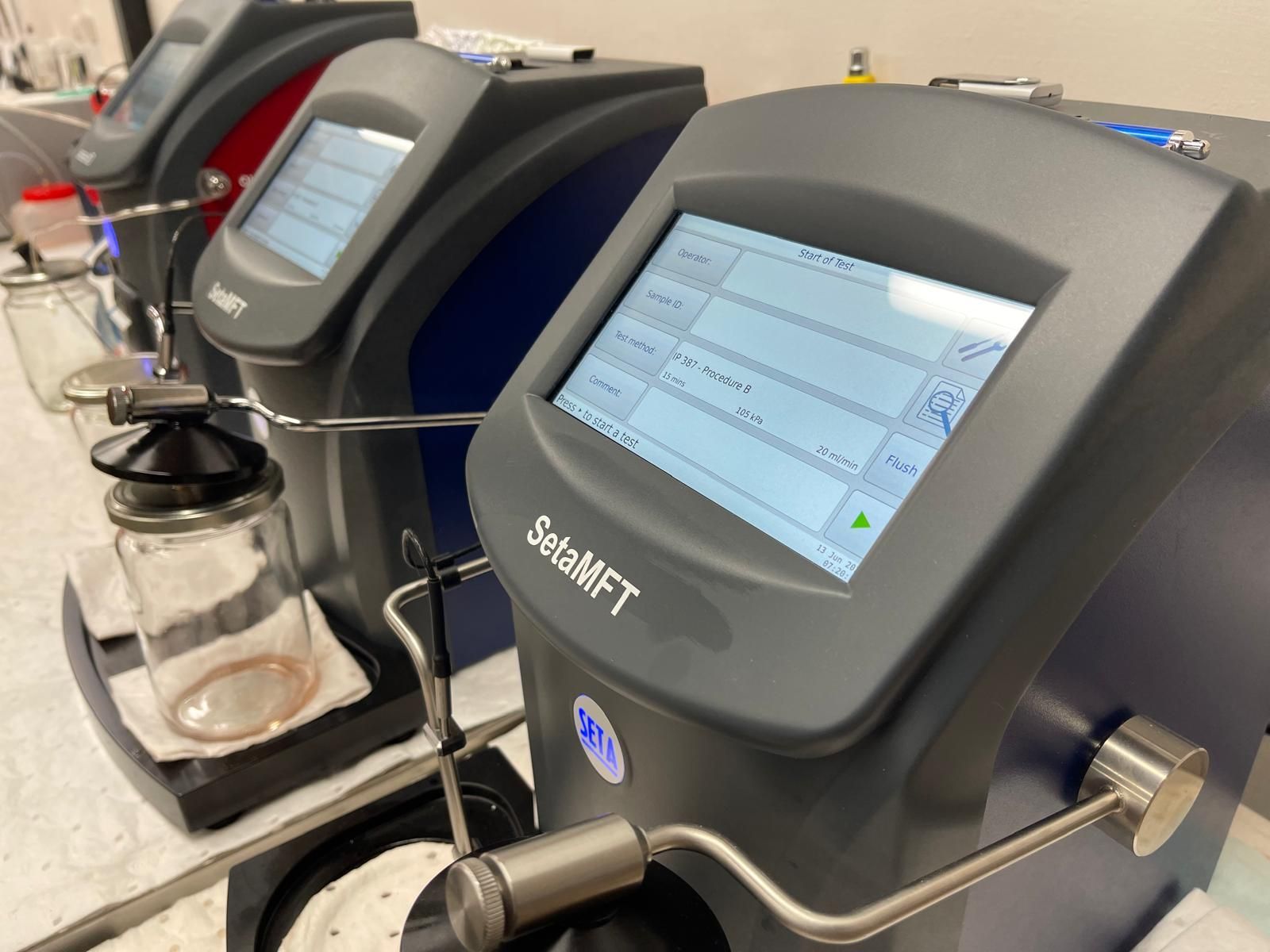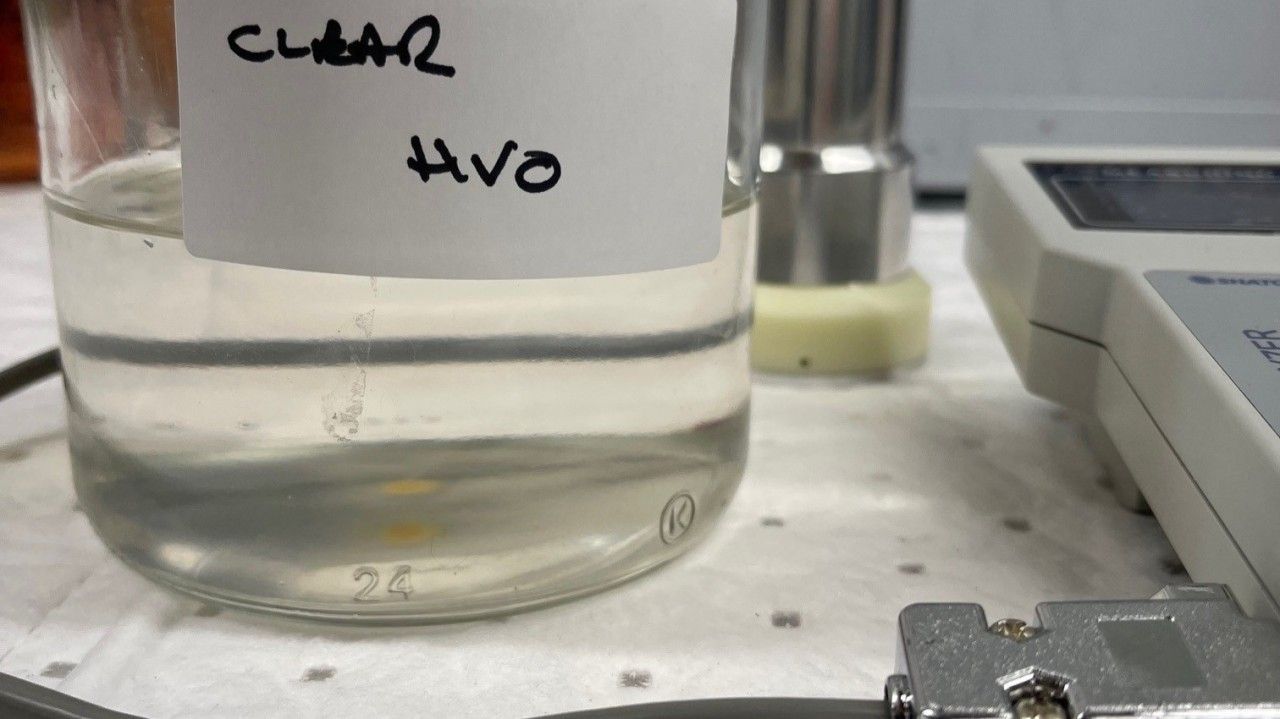Particles Count
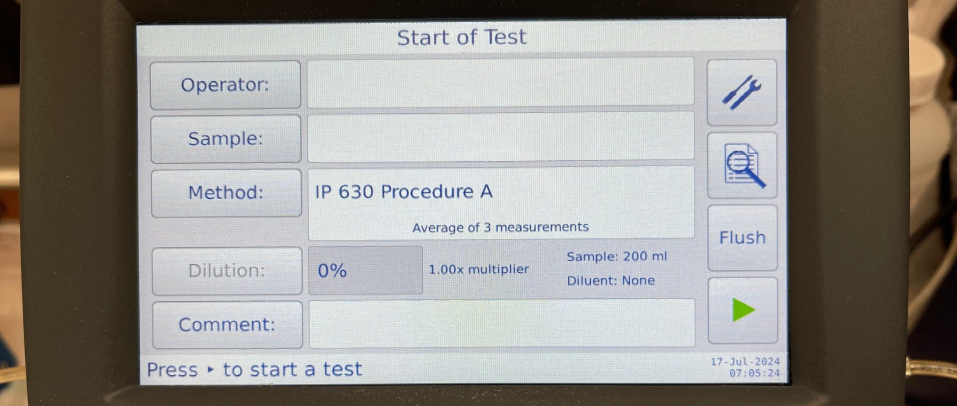
Particles Count
Although ISO4406 particulate counts are not part of fuel specification testing characteristics, it is an important measurement and will be a stipulation by a OEM that the fuel has to conform to a specification and possibly an ISO4406 quality conformance, prior to on engine filters.
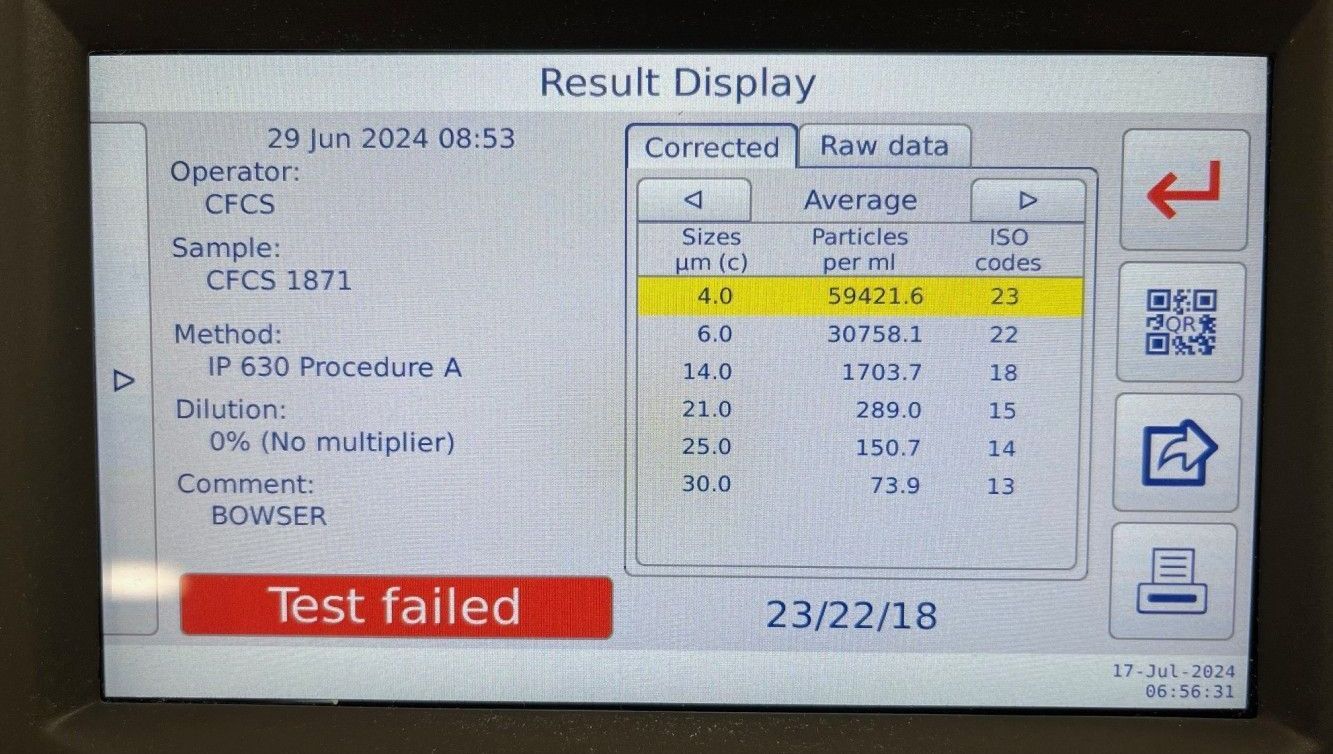
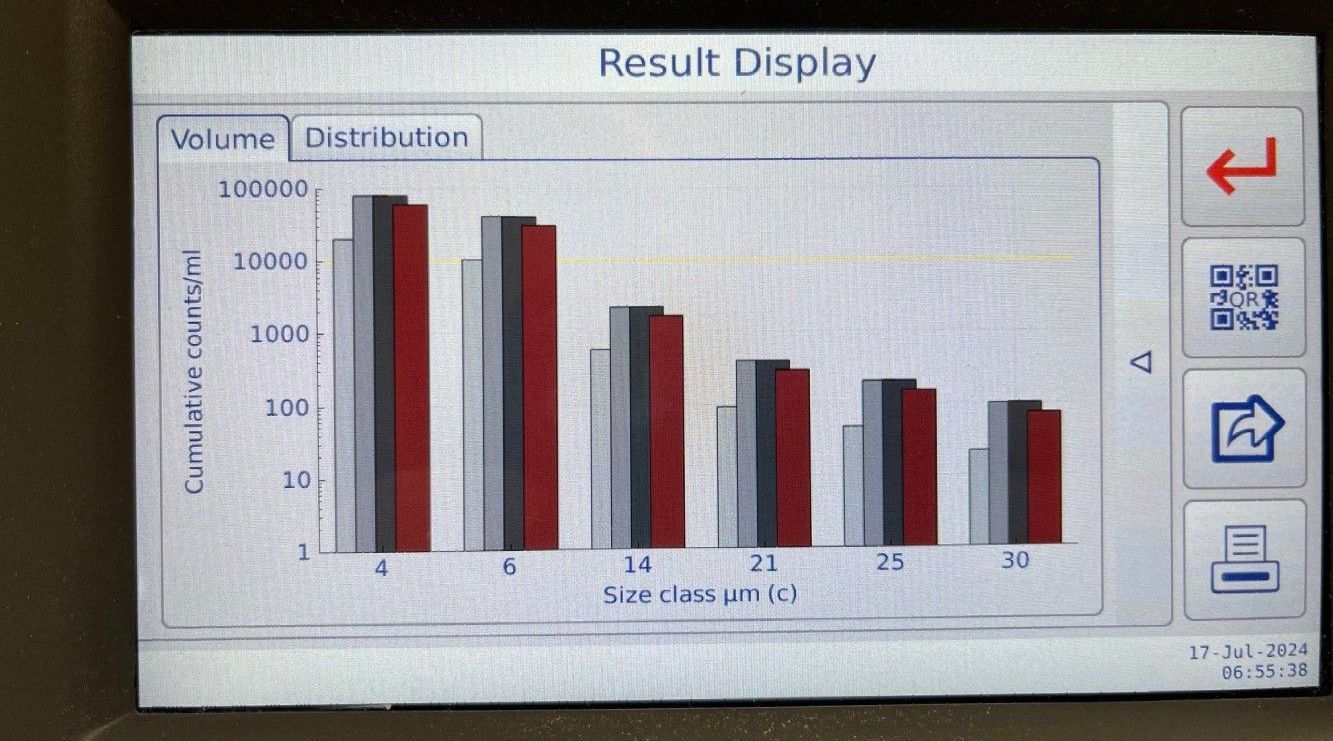
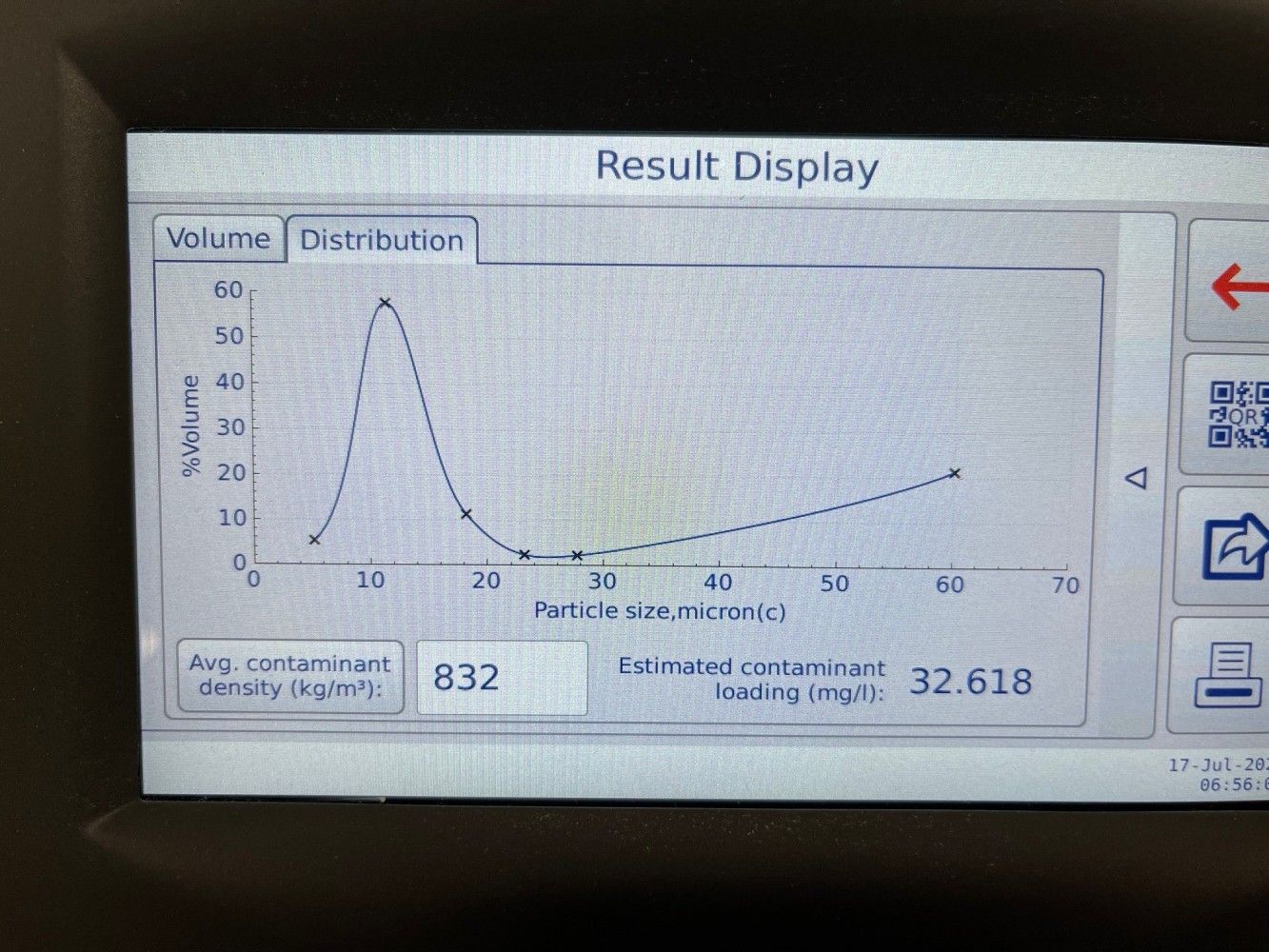
This information can now be used as a guide to total contamination on fuel specifications, and is an interesting correlation that can be advised to a client.
The allowable Total contamination on this fuel sample was 24, however we are seeing readings of 32, once soluble contamination has been discounted from the results via additional testing, a work proposal of fuel Polishing and conditioning would be advised, if the remaining fuel characteristics are within specification.
If you have any requirement for Fuel and oil analysis please contact
cfcs@contaminatedfuel.co.uk
